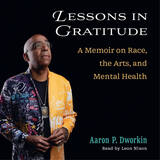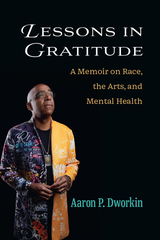
Wright's shifting-balance theory of evolution, first conceived in 1925, has proved enormously useful in modern evolutionary biology. Wright's international prestige has never been higher than it is currently, and the time is ripe for a rereading of his seminal papers. These papers are not only historically important for understanding the period of the "evolutionary synthesis" of the 1930s and 1940s, but continue to be stimulating and useful to working evolutionary biologists today.
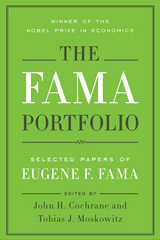
Published soon after the fiftieth anniversary of Fama’s appointment to the University of Chicago and his receipt of the Nobel Prize in Economics, The Fama Portfolio offers an authoritative compilation of Fama’s central papers. Many are classics, including his now-famous essay on efficient capital markets. Others, though less famous, are even better statements of the central ideas. Fama’s research considers key questions in finance, both as an academic field and an industry: How is information reflected in asset prices? What is the nature of risk that scares people away from larger returns? Does lots of buying and selling by active managers produce value for their clients? The Fama Portfolio provides for the first time a comprehensive collection of his work and includes introductions and commentary by the book’s editors, John H. Cochrane and Tobias Moskowitz, as well as by Fama’s colleagues, themselves top scholars and successful practitioners in finance. These essays emphasize how the ideas presented in Fama’s papers have influenced later thinking in financial economics, often for decades.
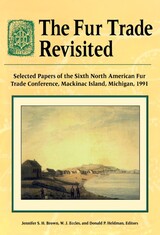
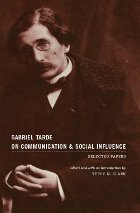
Gabriel Tarde ranks as one of the most outstanding sociologists of nineteenth-century France, though not as well known by English readers as his peers Comte and Durkheim. This book makes available Tarde’s most important work and demonstrates his continuing relevance to a new generation of students and thinkers.
Tarde’s landmark research and empirical analysis drew upon collective behavior, mass communications, and civic opinion as elements to be explained within the context of broader social patterns. Unlike the mass society theorists that followed in his wake, Tarde integrated his discussions of societal change at the macrosocietal and individual levels, anticipating later twentieth-century thinkers who fused the studies of mass communications and public opinion research.
Terry N. Clark’s introduction, considered the premier guide to Tarde’s opus, accompanies this important work, reprinted here for the first time in forty years.
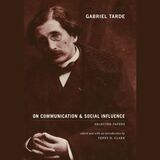
This is an auto-narrated audiobook version of this book.
Gabriel Tarde ranks as one of the most outstanding sociologists of nineteenth-century France, though not as well known by English readers as his peers Comte and Durkheim. This book makes available Tarde’s most important work and demonstrates his continuing relevance to a new generation of students and thinkers.
Tarde’s landmark research and empirical analysis drew upon collective behavior, mass communications, and civic opinion as elements to be explained within the context of broader social patterns. Unlike the mass society theorists that followed in his wake, Tarde integrated his discussions of societal change at the macrosocietal and individual levels, anticipating later twentieth-century thinkers who fused the studies of mass communications and public opinion research.
Terry N. Clark’s introduction, considered the premier guide to Tarde’s opus, accompanies this important work, reprinted here for the first time in forty years.

In addition to the selected papers themselves, this volume opens with a foreword by David Fisher, Alexander Lubotzky, and Gregory Margulis, as well as a substantial introductory essay by Zimmer recounting the course of his career in mathematics. The volume closes with an afterword by Fisher on the most recent developments around the Zimmer program.
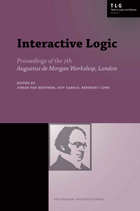

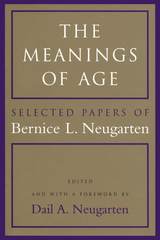
Carefully edited by Dail Neugarten, each chapter presents the reader with Bernice Neugarten's original formulations on topics such as age norms and age constraints, the changing meanings of age, and age neutral social policy. Including four previously unpublished papers, The Meanings of Age will be of interest to scholars, students, and practitioners of psychology, education, law, medicine, social policy, and gerontology.
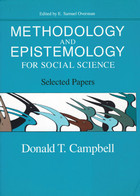
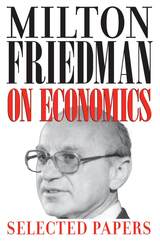
Milton Friedman on Economics: Selected Papers collects a variety of Friedman’s papers on topics in economics that were originally published in the Journal of Political Economy. Opening with Friedman’s 1977 Nobel Lecture, the volume spans nearly the whole of his career, incorporating papers from as early as 1948 and as late as 1990. An excellent introduction to Friedman’s economic thought, Milton Friedman will be essential for anyone tracing the course of twentieth-century economics and politics.
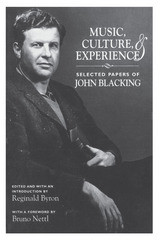
This volume brings together in one convenient source eight of Blacking's most important theoretical papers along with an extensive introduction by the editor. Drawing heavily on his fieldwork among the Venda people of South Africa, these essays reveal his most important theoretical themes such as the innateness of musical ability, the properties of music as a symbolic or quasi-linguistic system, the complex relation between music and social institutions, and the relation between scientific musical analysis and cultural understanding.


Kimura's neutral theory, first presented in 1968, challenged the notion that natural selection was the sole directive force in evolution. Arguing that mutations and random drift account for variations at the level of DNA and amino acids, Kimura advanced a theory of evolutionary change that was strongly challenged at first and that eventually earned the respect and interest of evolutionary biologists throughout the world. This volume includes the seminal papers on the neutral theory, as well as many others that cover such topics as population structure, variable selection intensity, the genetics of quantitative characters, inbreeding systems, and reversibility of changes by random drift.
Background essays by Naoyuki Takahata examine Kimura's work in relation to its effects and recent developments in each area.
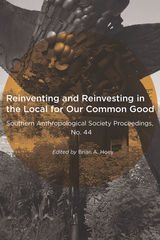
A growing number of cultural anthropologists and others in allied disciplines are doing ethnographic fieldwork in the communities where they live and work. Essays in Reinventing and Reinvesting in the Local for Our Common Good describe an engaged local anthropology that contributes to the common good by informing social change and public policy.
The volume includes examples of citizen or student involvement in ethnographic research: Residents of a rural community were both subjects and collaborators on a study of cultural attachment to land. A group of American university students on an international travel course and their South African peer mentors explored racism and cultural differences in an immersive fieldwork experience.
One essay traces the discipline’s evolving understanding of the ethnographer’s relationship to the community being studied—from dispassionate observer to critically self-conscious participant-observer. Another heralds the success of an unconventional local initiative: a popular radio drama shows great promise for raising HIV awareness among young women in Botswana. A final essay makes a plea for broad public engagement in improving the lives of people with Autism Spectrum Disorder.
These papers were presented at the April 2016 annual meeting of the Southern Anthropological Society (SAS) in Huntington, West Virginia.
BRIAN A. HOEY is associate dean of the Honors College and a professor of anthropology at Marshall University.
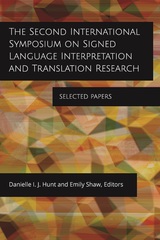
Signed chapter summaries will be available on the Gallaudet University Press YouTube channel upon publication.

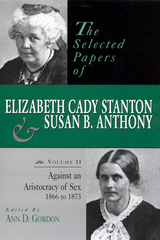
The second volume picks up the story of Stanton and Anthony at the end of 1866, when they launched their drive to make universal suffrage the priority of Reconstruction. Through letters, speeches, articles, and diaries, this volume recounts their years as editor and publisher of the weekly paper the Revolution, their extensive travels, and their lobbying with Congress. It touches on the bitter division that occurred among suffragists over such controversial topics as marriage and divorce, and a national debate over the citizenship of women under the Fourteenth and Fifteenth Amendments. By the summer of 1873, when this volume ends, Anthony stood convicted of the federal crime of illegal citizenship of women under the Fourteenth and Fifteenth Amendments. By the summer of 1873, when this volume ends, Anthony stood convicted of the federal crime of illegal voting. An irate Stanton warned, "I felt afresh the mockery of this boasted chivalry of man towards woman."
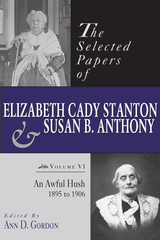
The “hush” of the title comes suddenly, when first Elizabeth Cady Stanton dies on October 26, 1902, and three years later Susan B. Anthony dies on March 13, 1906. It is sudden because Stanton, despite near blindness and immobility, wrote so intently right to the end that editors had supplies of her articles on hand to publish several months after her death. It is sudden because Anthony, at the age of eighty-five, set off for one more transcontinental trip, telling a friend on the Pacific Coast, “it will be just as well if I come to the end on the cars, or anywhere, as to be at home.”
Volume VI of this extraordinary series of selected papers is inescapably about endings, death, and silence. But death happens here to women still in the fight. An Awful Hush is about reformers trained “in the school of anti-slavery” trying to practice their craft in the age of Jim Crow and a new American Empire. It recounts new challenges to “an aristocracy of sex,” whether among the bishops of the Episcopal church, the voters of California, or the trustees of the University of Rochester. And it sends last messages about woman suffrage. As Stanton wrote to Theodore Roosevelt on the day before she died, “Surely there is no greater monopoly than that of all men, in denying to all women a voice in the laws they are compelled to obey.”
With the publication of Volume VI, this series is now complete.
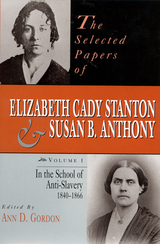
In the School of Anti-Slavery, 1840-1866 is the first of six volumes of The Selected Papers of Elizabeth Cady Stanton and Susan B. Anthony. The collection documents the lives and accomplishments of two of America's most important social and political reformers. Though neither Stanton nor Anthony lived to see the passage of the Nineteenth Amendment in 1920, each of them devoted fifty-five years to the cause. Their names were synonymous with woman suffrage in the United States and around the world as they mobilized thousands of women to fight for the right to a political voice.
Opening when Stanton was twenty-five and Anthony was twenty, and ending when Congress sent the Fourteenth Amendment to the states for ratification, this volume recounts a quarter of a century of staunch commitment to political change. Readers will enjoy an extraordinary collection of letters, speeches, articles, and diaries that tells a story-both personal and public-about abolition, temperance, and woman suffrage.
When all six volumes are complete, the Selected Papers of Stanton and Anthony will contain over 2,000 texts transcribed from their originals, the authenticity of each confirmed or explained, with notes to allow for intelligent reading. The papers will provide an invaluable resource for examining the formative years of women's political participation in the United States. No library or scholar of women's history should be without this original and important collection.
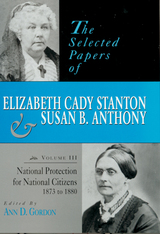
National Protection for National Citizens, 1873 to 1880 is the third of six planned volumes of TheSelected Papers of Elizabeth Cady Stanton and Susan B. Anthony. The entire collection documents the friendship and accomplishments of two of America's most important social and political reformers. Though neither Stanton nor Anthony lived to see passage of the Nineteenth Amendment in 1920, each of them devoted fifty-five years to the cause of woman suffrage.
The third volume of the Selected Papers of Elizabeth Cady Stanton and Susan B. Anthony opens while woman suffragists await the decision of the U.S. Supreme Court in cases testing whether the Constitution recognized women as voters within the terms of the Fourteenth and Fifteenth Amendments. At its close they are pursuing their own amendment to the Constitution and pressing the presidential candidates of 1880 to speak in its favor. Through their letters, speeches, articles, and diaries, the volume recounts the national careers of Elizabeth Cady Stanton and Susan B. Anthony as popular lecturers, their work with members of Congress to expand women's rights, their protests during the Centennial Year of 1876, and the launch that same year of their campaign for a Sixteenth Amendment.
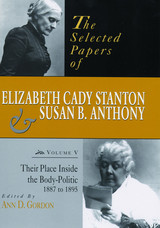
At the beginning, Stanton and Anthony focus their attention on organizing the International Council of Women in 1888. Late in 1887, Lucy Stone’s American Woman Suffrage Association announced its desire to merge with the national association led by Stanton and Anthony. Two years of fractious negotiations preceded the 1890 merger, and years of sharp disagreements followed. Stanton made her last trip to Washington in 1892 to deliver her famous speech “Solitude of Self.” Two states enfranchised women—Wyoming in 1890 and Colorado in 1893—but failures were numerous. Anthony returned to grueling fieldwork in South Dakota in 1890 and Kansas and New York in 1894. From the campaigns of 1894, Stanton emerged as an advocate of educated suffrage and staunchly defended her new position.
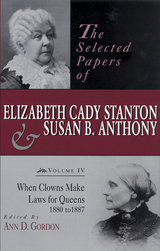
At the opening of the fourth volume, suffragists hoped to speed passage of a sixteenth amendment to the Constitution through the creation of Select Committees on Woman Suffrage in Congress. Congress did not vote on the amendment until January 1887. Then, in a matter of a week, suffragists were dealt two major blows: the Senate defeated the amendment and the Senate and House reached agreement on the Edmunds-Tucker Act, disenfranchising all women in the Territory of Utah.
As evidenced in this volume's selection of letters, articles, speeches, and diary entries, these were years of frustration. Suffragists not only lost federal and state campaigns for partial and full voting rights, but also endured an invigorated opposition. In spite of these challenges, Stanton and Anthony continued to pursue their life's work. In 1880 both women retired from lecturing to devote attention to their monumental History of Woman Suffrage. They also opened a new transatlantic dialogue about woman's rights during a trip to Europe in 1883.
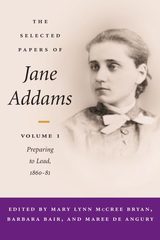
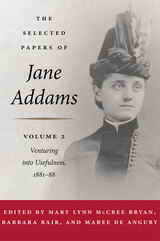
Artfully annotated, The Selected Papers of Jane Addams offers an evocative choice of correspondence, photographs, and other primary documents, presenting a multi-layered narrative of Addams's personal and emerging professional life. Themes inaugurated in the previous volume are expanded here, including dilemmas of family relations and gender roles; the history of education; the dynamics of female friendship; religious belief and ethical development; changes in opportunities for women; and the evolution of philanthropy, social welfare, and reform ideas.
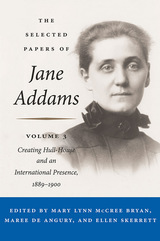
The third volume in this acclaimed series documents Addams’s creation of Hull-House and her rise to worldwide fame as the acknowledged female leader of progressive reform. It also provides evidence of her growing commitment to pacifism. Here we see Addams, a force of thought, action, and commitment, forming lasting relationships with her Hull-House neighbors and the Chicago community of civic, political, and social leaders, even as she matured as an organizer, leader, and fund-raiser, and as a sought-after speaker, and writer. The papers reveal her positions on reform challenges while illuminating her strategies, successes, and responses to failures. At the same time, the collection brings to light Addams’s private life. Letters and other documents trace how many of her Hull-House and reform alliances evolved into deep, lasting friendships and also explore the challenges she faced as her role in her own family life became more complex.
Fully annotated and packed with illustrations, The Selected Papers of Jane Addams, Volume 3 is a portrait of a woman as she changed—and as she changed history.
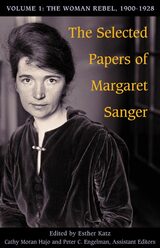
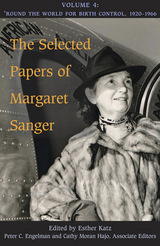
This volume focuses on Sanger from her groundbreaking overseas advocacy during the interwar years through her postwar role in creating the International Planned Parenthood Federation. The documents reconstruct Sanger's dramatic birth control advocacy tours through early 1920s Germany, Japan, and China in the midst of significant government and religious opposition to her ideas. They also trace her tireless efforts to build a global movement through international conferences and tours. Letters, journal entries, writings, and other records reveal Sanger's contentious dealings with other activists, her correspondence with the likes of Albert Einstein and Eleanor Roosevelt, and Sanger's own dramatic evolution from gritty grassroots activist to postwar power broker and diplomat.
A powerful documentary history of a transformative twentieth-century figure, The Selected Papers of Margaret Sanger, Volume 4 is a primer for the debates on individual choice, sex education, and planned parenthood that remain all-too-pertinent in our own time.
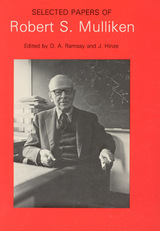
Included in the volume are essays of general as well as scientific interest; they are grouped under thematic headings. Part I contains those papers which are of historical significance. An autobiographical piece by Dr. Mulliken offers a glimpse of the many famous people whom he has known. Also reprinted is the text of his Nobel Prize acceptance speech. At the end is a list of his students and other co-workers, and a complete bibliography of his papers.
Part II includes Mulliken's work on band spectra and chemistry as well as his research on the assignment of quantum numbers for electrons in molecules. Part III surveys the author's early work on the bonding power of electrons and the method of molecular orbitals. Included is a discussion of the structure and spectra of a number of important types of molecules. The papers in part IV focus on the intensities of electronic transitions in molecular spectra. This incorporates Mulliken's work on charge transfer and the halogen molecule spectra.
The problems addressed in part V center on the spectra and structure of polyatomic molecules. Reprinted here is a report which Mulliken prepared on notation for polyatomic molecules. Part VI is devoted to the problem of hyperconjugation. These papers develop and apply the concept of hyperconjugation and explore its relation to the concept of conjugation. The last part offers some of the most important papers from the author's postwar publications. The central focus is on molecular orbital theory, the area in which Mulliken's Nobel-winning discoveries were made.

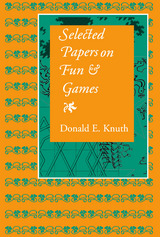
Donald E. Knuth’s influence in computer science ranges from the invention of methods for translating and defining programming languages to the creation of the TeX and METAFONT systems for desktop publishing. His award-winning textbooks have become classics that are often given credit for shaping the field, and his scientific papers are widely referenced and stand as milestones of development over a wide variety of topics. The present volume is the eighth in a series of his collected papers.


Chandrasekhar has selected papers that trace the development of his ideas and that present aspects of his work not fully covered in the books he has periodically published to summarize his research in each area.
Volume 1, Stellar Structure and Stellar Atmospheres, covers primarily the period 1930-40 and includes early papers on the theory of white dwarfs. In the Preface, Chandrasekhar explains the criteria for selection and provides historical background. Each subsequent volume will include a foreword by an authority on the topics covered.

Chandrasekhar has selected papers that trace the development of his ideas and that present aspects of his work not fully covered in the books he has periodically published to summarize his research in each area.
Volume 2 covers primarily the period 1940-50 and includes papers on the theory of radiative transfer and on the physics and astrophysics of the negative ion of hydrogen. Of particular note are Chandrasekhar's Gibbs Lecture to the American Mathematical Society in 1946 and his "Personal Account" presented at a conference at Erevan in the U.S.S.R. in 1981. A foreword by T. W. Mullikin, a distinguished scholar in the area of radiative transfer, and an author's note provide a historical context for the papers.

Chandrasekhar has selected papers that trace the development of his ideas and that present aspects of his work not fully covered in the books he has periodically published to summarize his research in each area.
This volume is divided into four sections. The first, on dynamical friction and Brownian motion, includes papers written after Chandrasekhar published his 1942 monograph Principles of Stellar Dynamics. Also in this section is "Stochastic Problems in Physics and Astronomy," one of the most cited papers in the physics literature, as well as papers written jointly with John von Neumann that have been given impetus to recent research. As Chandrasekhar notes, the papers in the second section, on statistical problems in astronomy, were influenced by Ambartsumian's analysis of brightness in the Milky Way. A third section on the statistical theory of turbulence addresses issues still unresolved in fluid dynamics, and the last section is devoted to hydromagnetic problems in astrophysics that are not discussed in Chandrasekhar's monographs.

Chandrasekhar has selected papers that trace the development of his ideas and that present aspects of his work not fully covered in the books he has periodically published to summarize his research in each area.
Volume 4 has three parts. The first, on plasma physics, includes joint work with A. N. Kaufman and K. M. Watson on the stability of the pinch, as well as a paper on Chandrasekhar's own approach to the topic of adiabatic invariants. Part 2 includes work with specific scientific applications of hydrodynamic and hydromagnetic stability not covered in his monograph on the subject. The final part contains Chandrasekhar's papers on the scientific applications of the tensor-virial theorem, in which he restores to its proper place Riemann's neglected work with ellipsoidal figures.
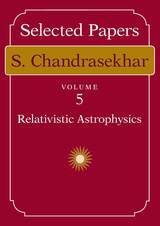
Chandrasekhar has selected papers that trace the development of his ideas and that present aspects of his work not fully covered in the books he has periodically published to summarize his research in each area.
Volume 5 covers all of Chandrasekhar's contributions to the general theory of relativity and relativity's astrophysical applications (except his research on black holes and colliding gravitational waves, which is covered in Volume 6). The major topics include the influence of general relativity on the pulsations and stability of stars; the back reaction of gravitational waves on their sources; and post-Newtonian approximations to general relativity and their astrophysical applications. In addition to research papers, the volume includes two 1972 lectures in which Chandrasekhar assessed the past, present, and future of relativistic astrophysics. The foreword by astrophysicist Kip S. Thorne is an absorbing, brief history of the field since 1961, capturing the atmosphere of the early research and clarifying Chandrasekhar's dominant role in it.
Chandrasekhar has never written a monograph synthesizing his research in relativistic astrophysics, and therefore this volume of his papers serves as a summary of that work for students and more senior researchers.

Chandrasekhar has selected papers that trace the development of his ideas and that present aspects of his work not fully covered in the books he has periodically published to summarize his research in each area.

world through the eyes of one of the twentieth century's most brilliant
and sensitive scientists. Conceived by Chandrasekhar as a supplement to
his Selected Papers, this volume begins with eight papers he
wrote with Valeria Ferrari on the non-radial oscillations of stars. It
then explores some of the themes addressed in Truth and Beauty,
with meditations on the aesthetics of science and the world it examines.
Highlights include: "The Series Paintings of Claude Monet and the
Landscape of General Relativity," "The Perception of Beauty and the
Pursuit of Science," "On Reading Newton's Principia at Age Past
Eighty," and personal recollections of Indira Gandhi, Jawaharlal Nehru,
and others.
Selected Papers, Volume 7 paints a picture of Chandra's universe,
filled with stars and galaxies, but with space for poetics, paintings,
and politics.
The late S. Chandrasekhar was best known for his discovery of the upper
limit to the mass of a white dwarf star, for which he received the Nobel
Prize in Physics in 1983. He was the author of many books, including
The Mathematical Theory of Black Holes and, most recently,
Newton's Principia for the Common Reader.

The ten papers in Signed Language Interpretation and Translation Research cover a range of topics, including the need for Deaf perspectives in interpretation research, discourse strategies and techniques that are unique to video relay call settings, the benefits of using sociology as a lens for examining sign language interpreting work, translating university entrance exams from written Portuguese into Libras (Brazilian Sign Language), the linguistic choices interpreters make when interpreting ASL figurative language into English, the nature of designated interpreting, and grammatical ambiguity in trilingual VRS interpreting. The research findings and insights contained here will be invaluable to scholars, students, and practitioners.
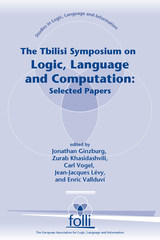
READERS
Browse our collection.
PUBLISHERS
See BiblioVault's publisher services.
STUDENT SERVICES
Files for college accessibility offices.
UChicago Accessibility Resources
home | accessibility | search | about | contact us
BiblioVault ® 2001 - 2024
The University of Chicago Press


